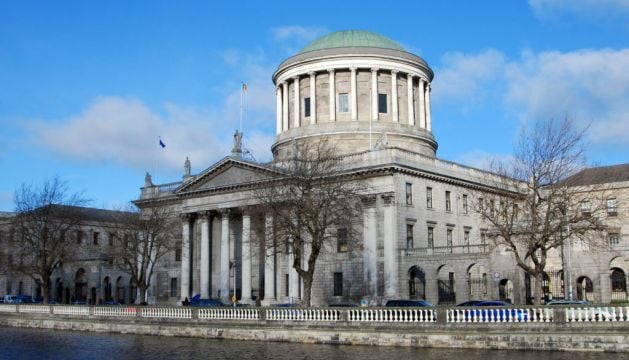A community group’s appeal seeking to overturn planning permission for a €15million visitor centre at Dublin’s Hellfire Club has been dismissed by the Supreme Court.
In a judgment on behalf of the five-judge court on Monday, the Chief Justice Donal O’Donnell said he was satisfied that permission for the development could not be affected by a decision of the Court of Justice of the European Union (CJEU).
While the High Court’s Mr Justice Richard Humphreys had dismissed the Hellfire Massy Residents Association’s claim that the development permission should be quashed, he referred important issues of EU law raised in the case to the CJEU.
Among the issues referred was a question asking if Irish regulations of 2011 implementing the European Birds and Habitats directives are invalid, by reference of EU law, in relation to a project that may be subject to a derogation application after it has secured planning consent.
He held that any decision the CJEU makes in response to his questions will not affect the validity of the planning permission itself.
The community group argued before the Supreme Court that the two issues were interrelated and that the High Court was wrong to dismiss its claim seeking to quash the planning permission. It submitted that the question of the planning approval’s validity should have been adjourned until the CJEU’s decision was made.
If the 2011 regulations were flawed, the association argued, then it must follow that the permission granted under an invalid and unlawful procedure was also invalid and should be quashed.
Ruling
In his Monday ruling, Mr Justice Donal O’Donnell said the case illustrates the complexity of planning law and judicial review procedures particularly when, “as is almost now universally the case”, European law issues are called upon.
The judge said the source of the issue in the case lies in the “proliferation” of grounds that are now commonly pleaded in planning cases.
Often pleaded collectively and against a number of different respondents, the judge said, it is perhaps a matter of perspective as to whether the grounds are “helpfully comprehensive” or a “witch’s brew designed to spread maximum confusion and to permit any argument to be made at the hearing that ingenuity can suggest”.
He held there had been a lack of clarity in the applicant’s legal pleadings, with the thrust of the challenge to the regulations directed at State parties, rather than An Bord Pleanála. It was not clear from the applicant’s legal papers how an asserted invalidity of the 2011 regulations would invalidate the planning permission, he said.
He added that the timescale involved in references to Europe can be considerable, with delay potentially having unforeseen effects on the viability of a development. It is normally in the public interest that challenges to planning permissions should be resolved promptly, said the judge.
There were valid reasons, then, for distinguishing between the reliefs applicable to the claim against the permission and that against the regulations, said the judge.
He also noted that Mr Justice Humphreys had proceeded to hear further arguments regarding the validity of the regulations when An Bord Pleanála was absent. These arguments could not lawfully have proceeded without the board if the approval was contingent on the validity of the 2011 regulations, he said.
Agreement
Ms Justice Elizabeth Dunne, Mr Justice Seamus Woulfe, Mr Justice Gerard Hogan and Mr Justice Brian Murray all agreed with the chief justice’s reasoning for dismissing the appeal.
The creation of a visitor centre at the summit of Montpelier Hill was first proposed in 2007. The site includes the Hellfire club, a national monument built around 1725.

An Bord Pleanála gave permission for the project to South Dublin County Council, which will develop it in co-operation with Coillte and the Dublin Mountains Partnership.
The residents’ group claimed the development will alter the type, intensity, mix and balance of visitors to Montpelier Hill, Natura 2000 sites and Massy’s Wood.
In his judgment last year, Mr Justice Humphreys said the association had failed to establish the figures for future visitor numbers, and were so flawed the board acted unlawfully in taking them into account.
The association was denied leave to appeal to the Court of Appeal, but was granted a so-called leapfrog appeal to the Supreme Court.







